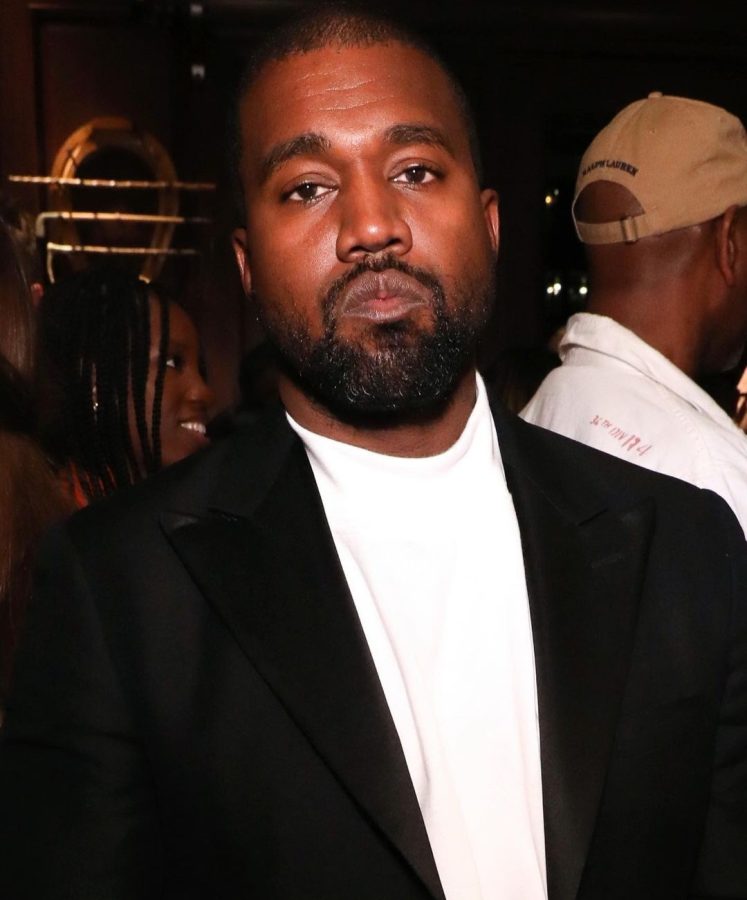We Have a Moral Responsibility to Cancel Kanye
I’m done with Kanye West and you need to be, too.
To be fair, I have never been a superfan of Kanye West, or “Ye.” I have a few of his throwback songs from the early 2000s on my playlist, but I never tracked his music releases or paid close attention to Yeezy, his clothing brand.
There are plenty of people who are cult fans of West, though, and this dedication is dangerous. I understand the temptation to separate the art from the artist; some people may just love West’s rap songs or his sneakers. However, West is no longer just an artist who has done a few bad things in his past. West continues to launch hateful comments without consequence in the limelight for all to see and glorify. For some reason, people are continuing to follow him.
Perhaps some individuals follow West with a morbid curiosity, eager to be the first to read his next outrageous tweet. To a certain extent, this motivation is understandable. West’s public outbursts have weaved their way into our quotidian culture.
When West unleashed a series of Instagram posts attacking Pete Davidson for his relationship with Kim Kardashian, the internet was swarming with memes. West posted a collection of text message screenshots, with captions like, “NO YOU WILL NEVER MEET MY CHILDREN,” “I WONDER IF INSTAGRAM GONNA SHUT DOWN MY PAGE FOR DISSING HILLARY CLINTON’S EX-BOYFRIEND” and “LOOK AT THIS D**KHEAD.” If you wanted to be in on the joke, you had to check West’s Instagram.
West’s social media presence has reached a point where his outrageousness is no longer unusual, and it is certainly no longer funny. In just one week, he was involved in a string of controversies.
On Oct. 3, West debuted a shirt at Paris Fashion Week for his fashion line, Yeezy, with the phrase “White Lives Matter” emblazoned across the front. On Oct. 4, the first hour of West’s interview with Fox News host Tucker Carlson aired. In the interview, West criticized the body positivity movement and its ideals as “demonic,” referencing singer Lizzo by name. On Friday, West suggested that rapper Sean “Diddy” Combs’ Instagram was being controlled by Jewish people. His Instagram account was restricted that day. On Sunday, West tweeted a series of antisemitic remarks, including a threat to go “death con 3 on JEWISH PEOPLE.” West’s Twitter was then restricted.
West has been open about his struggle with bipolar disorder, even going into detail on his relationship with mental illness in an interview with late night icon David Letterman. After this interview, West was revered for his vulnerability and strength. Viewers applauded West for speaking about his experience with bipolar disorder, advocating and crediting him with destigmatizing mental illnesses as a celebrity leader in this space. In fact, one therapist wrote an article reprimanding people for not having enough compassion for West, considering he has been open about his mental illness.
It is absolutely true that there is a lamentable stigma around mental health issues and individuals who suffer from mental illnesses. Our society has raised us not to educate ourselves on mental illnesses and to ask questions, but to shy away from them, which is a problem that destigmatization aims to fix.
However, glorifying West as a mental health icon while he has discredited medication as mental illness treatment and repeatedly thrust the people in his life into the limelight in a negative manner sets a similarly dangerous precedent: that West’s behavior, however harmful and publicized, is somehow excusable.
West’s career successes are undeniable, especially his financial ones. He is a man with access to unlimited resources that other struggling individuals would go to great lengths to have. Yet West has made clear his disdain for certain mental health resources, furthering the myth that medication inherently stunts an individual’s creativity and only rescinding this claim when he received backlash.
West has not spared his family from the public eye throughout his divorce from Kardashian. Instead, he has taken to Instagram multiple times, pleading with God to bring his family back together. Years from now, West and Kardashian’s children will have constant reminders thanks to West’s use of the internet of the gritty details of their parents divorce.
Somehow, West seems to bear little to no consequences. Sure, fashion companies like Balenciaga have removed themselves from any connection to West, and there are rumors that Adidas may be the next to cancel its partnership with the rapper. With more than 18 million followers on Instagram alone, I’m sure West isn’t too worried.
The line has to be drawn somewhere. With Twitter and Instagram restricting West’s access following his most recent offensive posts, we must consider whether West deserves access to these social media platforms at all and if these restrictions should become permanent. The move would not be unheard of. After all, Twitter and Facebook banned former President Donald Trump from the platforms just last year following the Jan. 6 insurrection.
As deplorable as West’s posts are, and as sad as it is to see a family forced into the spotlight by one of its members during a tumultuous year, there does not seem to be any legal reasoning to ban West from social media. Free speech seems to include hate speech. In a court decision from 1971, free speech was decidedly found to include the right to use offensive language to convey certain political messages and ideas.
The only limitations to free speech include time, place and manner. Trump’s comments preceding the Jan. 6 riots, for example, are not protected by free speech because free speech does not include the right to incite imminent lawless action.
Unless Instagram and Twitter are ready to declare themselves an anti-free speech platform, there is no basis for them to be permanently banning West.
What about traditional media outlets, then? Is it unethical for Fox News hosts to be interviewing West? Or for countless organizations to be writing articles about West’s comments? The answer, again, seems to be no. It is the job of reporters to report the news. In fact, it is the duty and responsibility of news organizations to deliver the news. Considering the clicks on articles mentioning West and the interest of individuals like ourselves, his harmful comments are undeniably newsworthy.
Reporting the news isn’t the only responsibility of news organizations, though. For decades, since print, radio and television news first began, there have been debates about the role of news organizations and the prioritization of objectivity versus advocacy. Legendary broadcast journalist Walter Cronkite is still beloved today for his dedication to objective news. But we also look back on and respect the reporters who took a stand. We applaud Edward R. Murrow, the father of television news, for speaking out against McCarthyism in the midst of the Red Scare.
While it may be journalists’ duty to deliver the latest news, it is also their moral responsibility to speak on the real harm that West is causing.
It doesn’t end there. All of us, journalists or not, have a responsibility to speak up. We have a responsibility to call out people who think West’s comments are just “funny,” despite the fact that his latest tweets are undeniably antisemitic. I have a responsibility to check Instagram and ask myself why I have more than 70 mutuals following West’s Instagram account still. Free speech in America is a wonderful right, but that doesn’t mean that we as citizens have to let every harmful comment go by unchecked.
Taylor Herzlich, FCRH ’23, is a journalism major and English minor from Mt. Sinai, N.Y.

Taylor Herzlich is a senior at Fordham College at Rose Hill. She is majoring in journalism with a minor in English. Taylor started writing for the Ram...










































































































































































































